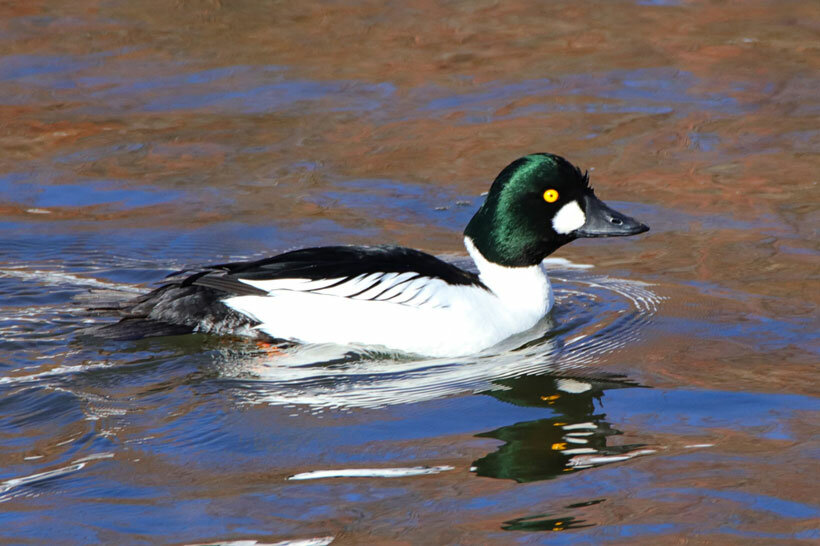
Photo courtesy Charles Martinez
This week’s Bird of the Week, compliments of the Weminuche Audubon Society and Audubon Rockies, is the common goldeneye.
Locating this bird in summer would require a trip to the far northern boreal forests of Canada and Alaska, but in winter they are found across the lower 48 states on large rivers, open lakes or along the coasts. These hardy ducks typically show up here in early November to spend the winter in the river and on the open water of lakes.
Common goldeneyes are fast flyers, achieving speeds of up to 40 mph. Hunters refer to them as whistlers for the distinctive sound made by their wings in flight, but otherwise they are mostly quiet. Both sexes of this attractive bird have the bright, amber-colored eyes for which they are named. Males have black backs and wisps of black feathers on their white sides. Their triangular-shaped heads are glossy green with a round white patch on their cheeks.
Females have chocolate-brown-colored heads and usually a black bill with an orange tip. They are very similar in appearance to the less common Barrow’s goldeneye female, also found here in winter.
Pair formation takes place on the winter grounds with males performing elaborate courtship displays and females responding. Females have a strong homing tendency for nesting and may migrate year after year with a partner trailing to use the same nest. Like many cavity-nesting ducks, female goldeneyes lay eggs in each others’ nests and even in the nests of other species.
One day after hatching, chicks jump to the ground from the nest, a distance of up to 40 feet. Although the female will guard the young chicks and lead them to a nearby small, clear lake, they are on their own to find aquatic invertebrates to eat. Females abandon their young early, and only around a third survive to flying age.
According to the Boreal Songbird Initiative, 80 percent of North American waterfowl rely on an intact boreal forest for breeding.
For information on events, visit www.weminucheaudubon.org and www.facebook.com/weminucheaudubon/.